Maeve Mulrennan – Curator at Galway Arts Centre
Maeve is a curator and writer based in Galway. She is the Head of Visual Art & Education in Galway Arts Centre, and lectures on the MA in Arts Policy & Practice at NUI Galway. She is also on the Board of Directors of TULCA Festival of Visual Art.
More from...
Can you tell us your path to getting here today?
I'm from Kildare, I actually never thought I’d live in Galway. My cousins used to go to college here and I'd visit. It was always one of these places that I thought was nice, but I never saw myself being here. I made a conscious effort not to go to college in Dublin; I didn't apply for any Dublin colleges. I wanted to move out; not that my family aren't nice, but I wanted to fly away a little bit, so I went down to Limerick to do painting in LSAD and then came to Galway. So I've been in Galway for 12 years now.
I'm in this job nine years, but I started the way everyone in Galway does; I got a couple of hours doing something and that led to something else, so then by the time the job came up a year and a half later, I felt that I was ready for it.
What's the remit of the Galway Arts Centre?
We show mostly Irish artists, contemporary, so it's not an historic museum or anything like that, to an audience that's primarily Galway City and County citizens or public. We're publicly funded so we’re commercially driven. That means that we can do more experimental things. That's our official remit, and our policy ourselves is to support risk-taking for artists and to support the population in Galway to engage with interesting art forms. It's not just visual arts - all this week we were doing more design-based workshops for mid-term, so we do branch out. It's more about providing an artistic experience rather than trying to force people to love conceptual painting or things like that.
What exactly do you do as a curator?
There's a gallery space in Dominick Street and when you go in, there’s always something different in there. So we have about 10 to 12 different shows per year and that's a mix of month-long shows, festivals, things like that. So it’s my job to invite people to exhibit, and to run an open submissions that people can apply to exhibit as well. So it's a mix of solo artists and then group exhibitions. Usually I would be the one that puts the group exhibition together. There's also a big education element that kind of evolved very naturally over the last seven years and I've had to embrace that as part of my job, even though that wasn't there when I began.
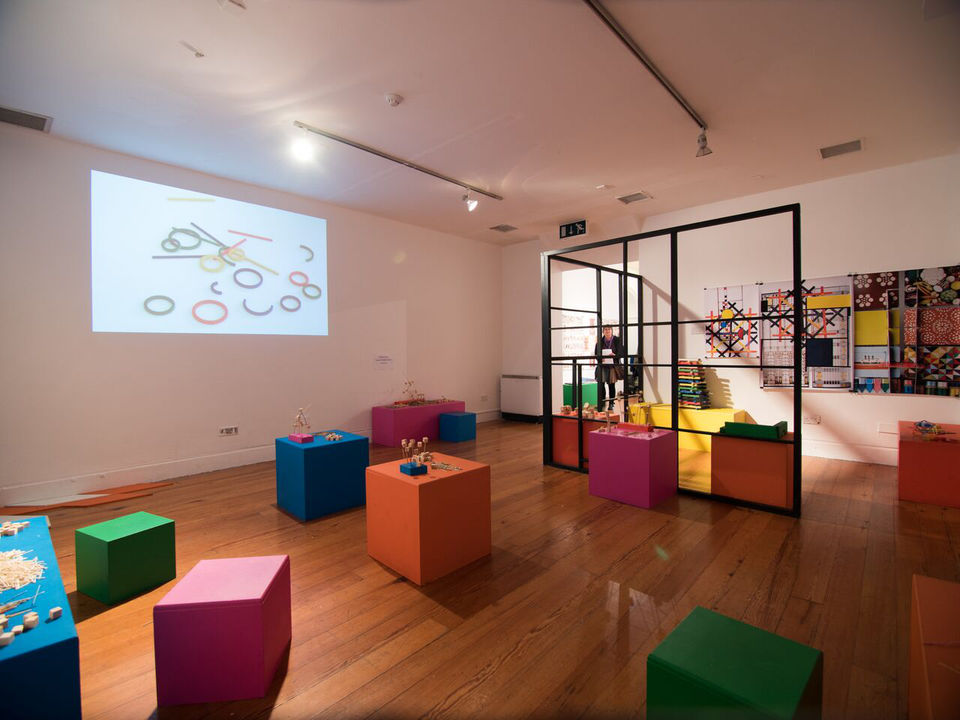
How do you choose an artist, what do you look for when putting a show together?
With the Galway Arts Centre, we have an audience in Galway City and Galway County, primarily. We do get a lot of tourist students, people like that, but we're funded to look after the Galway audience. Luckily for us, the Galway audience is quite sophisticated in what they want and what they like going to so, we can take a lot of risks and we can show new artists. Then if we do show more established artists, we usually ask then to take a risk with something, maybe by making something in a new medium, things like that. So a lot of my job is going to see shows, going to studio visits, degree shows in colleges every June. I go abroad, but obviously there's no money to send me so that's usually my summer holiday as well. I was in Venice in May for the Biennale, and I had to pay for that myself but it doesn't feel like work; it's not like you're working down a coal mine, it's fun. So you're always looking. And it could be that you find an actual artist or it could be that you find a certain way of doing something or you see a curator presenting something in a very specific way that's new to you, so it's constant looking and research. I did three months in Berlin a few months ago as research, I did a residency, and I'm still reaping the benefits from that, both in a very direct way with showing artists that I met, but then following up on interesting ideas or ways of doing things. Then the other side is that people apply to show, and that's great because even with going to as much things as you can, you do not know everyone and it's actually brilliant when you find this person that you've never seen before. It's usually, say, if people move back to Ireland after being abroad for a while or people coming from different college. The main thing I would look for is the artwork, is the idea, so usually if someone sends me an application, it's a CV and images. I would look at the images first, and then CV later. If they're a good artist, it doesn't really matter what's on their CV?
What makes a good artist in your opinion?
I think investing the time into it - and that is a sacrifice, which is why a lot of people don't do it. They could be brilliant artists, but that constant worrying about money, they just can't handle it. So it’s people that do prioritise it that make good artists. It could be that they work nights or they teach, but their art practice is their main concern. And then that they're consistent as well, that they're pushing and trying and that it's an everyday thing, that it's not they made a really good piece of work in 1998 and that's it. Most artists are never happy or fully satisfied and that's what drives them to keep going. You know, if you make the perfect art work, you're kind of done. So it's that drive just to keep going and a genuine interest in showing to an audience. You do have people who love making things who have no interest in showing. I'd be one of those people; I like making things, but I'm not interested in exhibiting. I did painting in college, but I figured out in third year that I wasn't an artist. You can have a skill, you can enjoy doing it, but it doesn't mean you're an artist. I preferred working with other people and I preferred working with their art work rather than my own. I kind of liken it to someone doing psychology in college doesn't necessarily mean they're going to be a psychologists. But it was a brilliant education.
Tell us about the educational aspect of what you do?
Usually with education, you're working with people who aren't professional artists - that's the commonality, everything else is case by case. So we do a big project with older people in nursing homes every May. It’s with 11 nursing homes in the city and county and artists go out and work with them. We have three in the Gaeltacht as well. We have Irish speakers. So from our point of view, the main thing is working with older people, but a secondary thing is that we're employing artists, we're giving them work. If an Irish-speaking artist can get work in their native language, then that's even better from our point of view. We'd always be looking at the two sides of things - the audience, the public and how we helping an artist as well. Another big project is called Red Bird - it's a youth collective where 15 to 23-year-olds’ work with professional artists on a collaborative basis - so they're instructed on how to do things. It's kind of working on the basis that they have ideas, they have their own motivations, they have their own skills and they bring that to the table. It's getting away from that notion that art equals drawing and that if you're not good at drawing, you're not good at art. If you have an idea and you want to communicate it, you can be an artist. That's a big part of what we do and at any one time, we'd have a project on the go so we'd have a couple of artists working with us and we were able to take on an administrator over the last couple of years as well to work with them. She's the go-between between the young people and the artist so she's making sure everyone is happy. We'd also do a lot of work with schools. We've just finished working with Baboró; we had 2,000 kids in over two weeks - all primary and again, it's more about nurturing an interest in arts. You don't have to feel like you have to be good at art, to enjoy it or to be creative; creativity can be just engaging with a piece of art - you don't have to be a mini artist. We do work with kids in secondary school, but that's a lot harder because it's so exams-driven and their curriculum is so tight. We do have schools that would come into us all the time and we'd have a lot of schools coming in when we do things that are more exam-focused. We do art history lectures every spring and they would come into that. I love art history, but it doesn't really look at 20th century past 1920s - I think that's a real pity. But I don't run the department of education - there's only so much I can do.
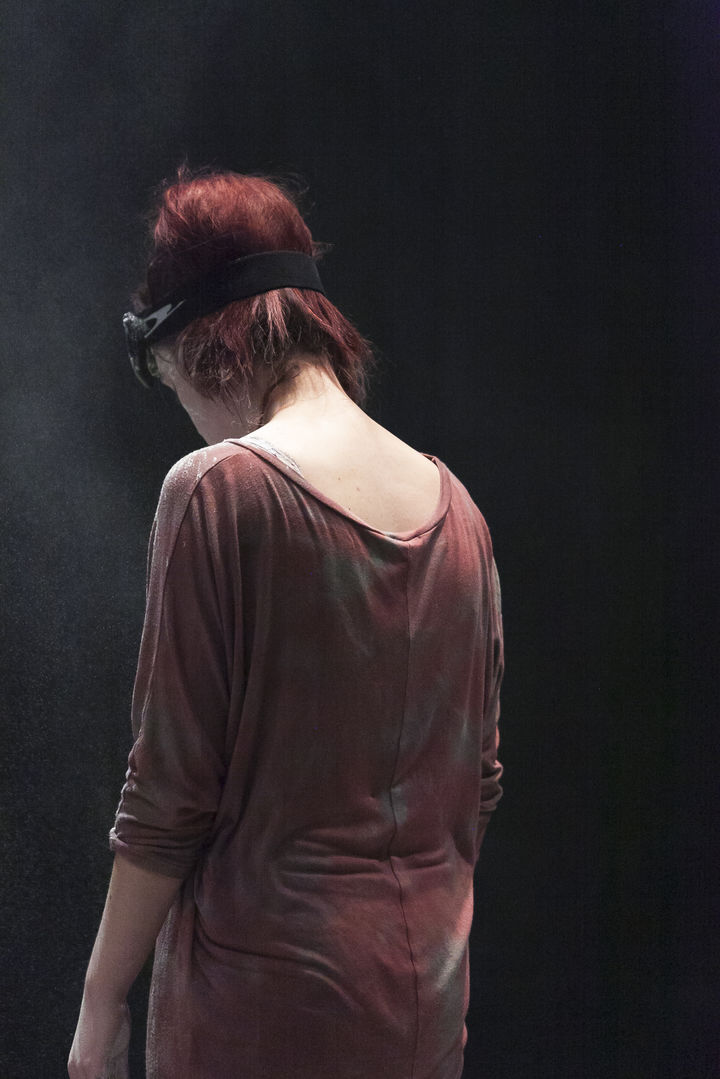
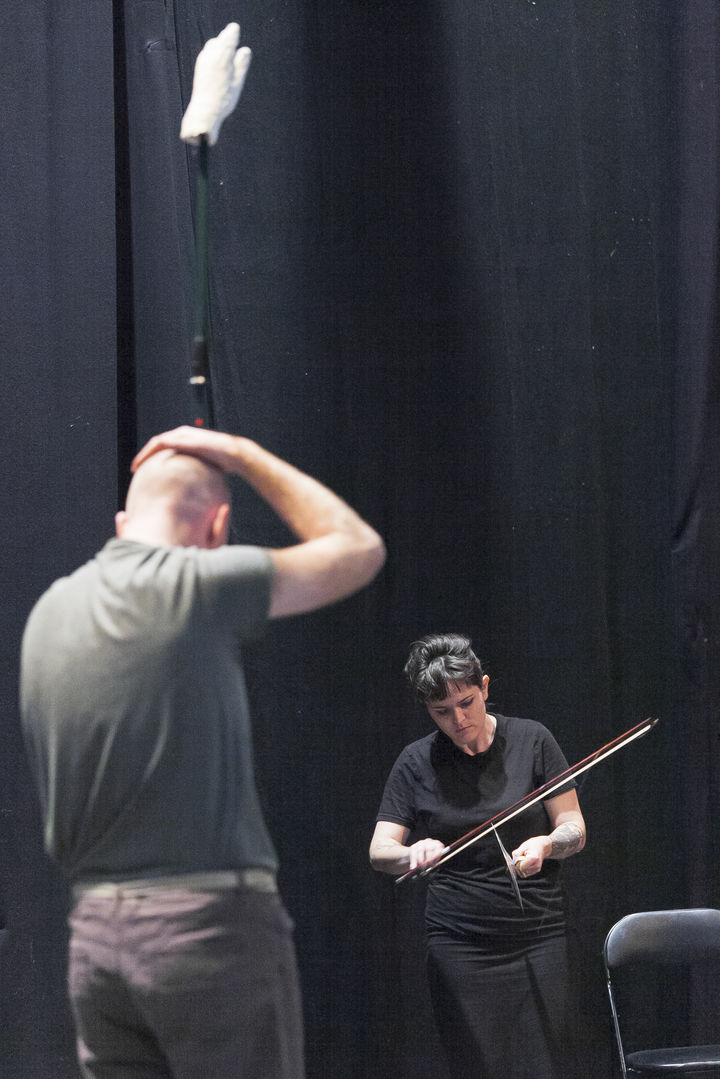
Out of all the exhibitions that you've created, what have been the most successful in your eyes or most satisfying for you?
For me, it was an exhibition by an artist called Lars Laumann, who's Norwegian. I was really happy with that because it came out of nothing and I had to build it up. I saw his work in Berlin when I was doing my Masters; we were on a college trip. I just really liked his work and wanted to show his work in the Galway Arts Festival. He had a very posh London gallery, so I had to work with them and convince them that I was worth talking to in the first place and it built up and built up. It was very strict - we were told we had to use certain speakers... this colour paint on the wall - we were able to meet all of their needs even though we'd no money to afford all this stuff. But we managed and then when Lars came over, he was the sweetest, most lovely person ever. So all of that pushing and pickiness was the gallery and he was just this Norwegian guy that just wants to make art and meet new people. So it was really nice having him here; it made a big difference on how we worked on the show. He then went on later in the year to win a massive prize in Norway, it's like the Nordic Turner Prize - he won a lot of money and did an exhibition and a catalogue, and photographs from our show in Galway were in the catalogue with an essay written by the person who opened his show in Galway. I’ve met him since and as much as our show in Galway meant to us, it meant even more to him. I never realised, because when you see someone in the Berlin Biennale, and he's represented by Maureen Paley in London, you just imagine they're these hotshots, but he was just this guy that wanted to make art. So that was a big deal for me, we got a really, really good audience and it was in the Arts Festival. Someone reviewed it and the only comments were that the videos were really long, and I was really upset about that. I was like, ‘I've worked for three years on this exhibition, you think the video's long, try working for three years on it and then tell me it’s too long!’. And then the things that are a success from the audience point of view as well, that's always interesting to see - how people respond to art works, or if they come back a few times to see it.
Do you take that personally? If there's a good reaction, or a bad?
Well, we know that say if we did an exhibition of very conceptual minimalist sculpture, people aren't going to run around telling everyone how much they love it - it's a different process. Then there are things where, say, the exhibition we have at the moment, it's for children and it basically looks like a giant montessori room so obviously people are going to love that and they're going to spend time in the gallery. So you're kind of hoping, ‘OK, you're here for this, so maybe when we do the next really weird exhibition, you'll be more likely come in because you've had a good experience the last time’.
But I think people do like things that make them laugh or have a strong emotional reaction to, even if that's a sad reaction. We had one exhibition about stillbirth and miscarriages and it was really bloody tough. We had the maternity ward in the hospital supporting us throughout it and people really, really engaged with that and came back a few times to see it. That was really amazing, so it's not just the really accessible stuff or the fun stuff that people are interested in.

Going back to your career, where do you see yourself at in your career?
I would like to stay in Ireland; I never thought that would be a thing, but I really do like working here and being here. Galway is quite an easy place to live and you often hear of people saying they came here for a weekend and that was years ago - that does happen. My commute is walking down under 200-year-old trees and ending with a view of the ocean- that beats being on the London tube for an hour up against someone's armpit or someone shouting at you to get out of the way. It's quite a nice way to live. That said, if I did have to move for a job, I would, because Ireland is so interesting and for a small country, I think it punches way above its weight in terms of art. So it would be really interesting to work somewhere else. I often tell my boss I'd hate his job, because he doesn't really get to have much fun - so I’m not sure if a director's role with all that responsibility is for me. I'd like to hand that over to someone else so they can stay up at night worrying about money and then I can stay up late at night worrying about ideas and art and things like that. I have ventured abroad for little projects for a month here or there, and it’s really nice to have that flexibility as well, so I'd like to keep that. I fell into teaching - I teach in NUIG in the MA in Arts Policy and Practice and I do like it - I really didn't think I would, so I think no matter what I do, I’d like to keep that going.
When I came up to Galway it was a post-grad, so I did that course and then it became an MA after I did it. So I teach on that - that's really good because I have to know my stuff. So let’s say with a new Arts Council strategy, everyone else is like, ‘Oh yeah, I'll get round to that,’ I have to read it because I have to teach it the following week. So it does keep you on your toes and you get to meet a lot of great people. A lot of people coming out of that course stay in Galway, so you end up working with them as well.
What’s a typical day for you?
There isn't really a typical day - it does involve a lot of talking to people though, regardless so I'd say that's the typical thing that I do everyday.
You obviously enjoy talking to people then...
I was a really, really shy child - painfully shy, I wouldn't speak. It wasn't just that I had a shy personality, I just wouldn't speak, so it's quite strange that I am working with people. I couldn’t get past it until I went to art college. I found my people. You'd have to enjoy it now, because it's seven days a week. You don't have time off and when you do, it's trying to recharge yourself to go again or catching up on reading or researching.
Is there a part of you that's introverted then?
Oh yeah, for every hour out and about, you need some time recharging. I'd' be a big reader - that's my quiet time.
How would you describe yourself?
I can't think of anything that doesn't sound like a dodgy dating site, like I like long walks on the beach. It's weird, because how I see myself is probably not how other people see me at all.
So you're not a navel gazer?
I would feel like a bit of a gawky, shy outsider most of the time, but I think most people are like that. I was talking to an artist before who was showing with us and I was actually quite stressed, because he's such a perfectionist. So I was like, ‘Right, we have to be really amazing with this show’. He was working himself up to a state, and we went for a drink one night halfway through and he was like, ‘I'm just terrified that people are going to find me out and realise that I've no idea what I’m at’. I remember thinking if he feels like that and he's this perfect, amazing artist, then it's ok for me to feel like that. I have been quite lucky that I've found my place, but I do feel like I'm just about getting away with it...they're going to find out soon.
It's that whole imposter syndrome…
Yeah, maybe it would be different if I did a management course. My MA was curating, but I didn't go into an art gallery until I was 16; I'd no idea about art at all and I didn't even intend on going to art school until that age as well. We’re working with a 16-year-old; she has published illustrations, she's published short stories, she's won short story competitions. I think, ‘Oh my God, what's she going to be like when she's 25? When I was that age, I didn't have a clue. So I still feel I don't have a clue.
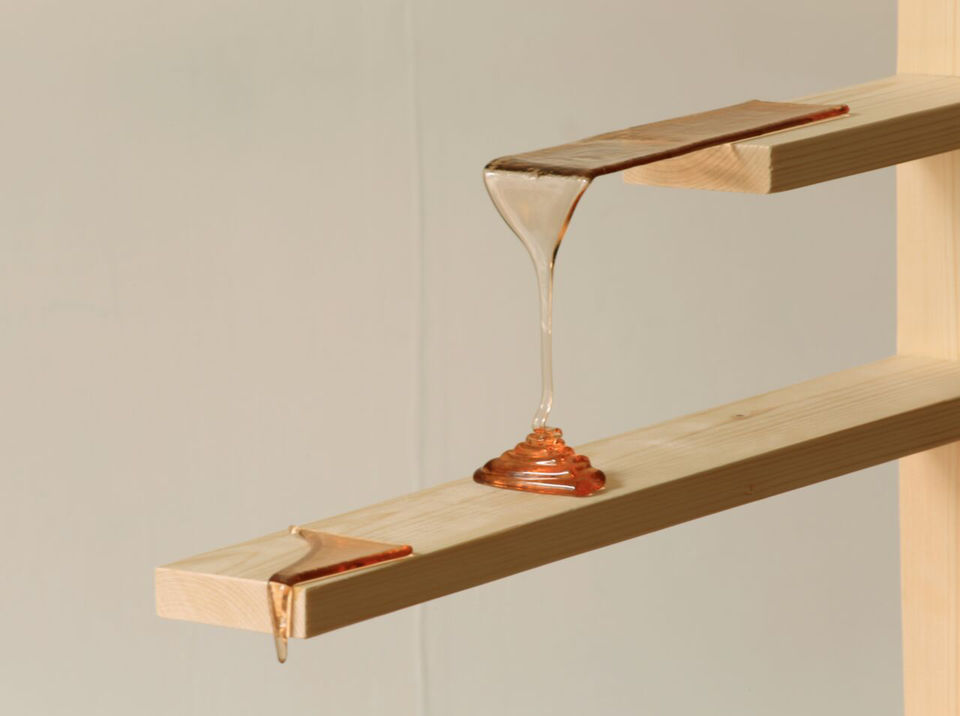
Any major influences or mentors in your life?
I think my grandmother had a really indirect influence on me and I didn't realise that until I started writing . I discovered a few years ago that painting wasn't my creative outlet, but short story writing was and I realised that my story telling method was basically my grandmother's voice. She was quite a strong lady and interested in people - she was fun too. She could be harsh as well, saying, 'You'll grow into your face one day'. She was a big animal lover and nature lover too. I didn't realise how much of an influence she was until she died and then she wasn't there anymore, and it was like, ‘Right, I should really have paid more attention there’.
From an art point of view, when I was in college in Galway, I did a couple of internships and I worked with James Harold and then with the Film Fleadh. James was great in that he's really passionate about what he does, and he makes sure that people know that. But I have - it's not resting bitch face but its resting poker face - so even if on the inside, I'm thinking, ‘I'm so excited; this is the best thing ever’, on the outside I'll just look bored. So I have to try to convey that. If I really like an artist's work, I will say it to them, I won't just stand there thinking, ‘Oh, I like this so by osmosis they're going to know that’. Then in the Film Fleadh - they love what they do and they work their arses off, and they manage to have a lot of fun doing it.
Do you guys have fun doing what you do?
Actually, our youth administrator who we can only afford to have part-time - she works in a proper job the other three days a week, and she says it's so different being in an office where you can't sing or you can't dance. We have lots of fun and I think it's because we're happy to be there - there's no one sitting there growling at other people in the corner. And you have to, because especially our technicians, they work so hard. They work long hours, they work late hours and antisocial hours, so it has to be fun and it has to feel like your hard work is acknowledged as well. So that's a major part of it.
Do you write often?
I try to do a little bit every day, even if it's rubbish, and most of it is. Or even if it's journal writing. I learnt that in art school - you show up and you do it. If you're waiting around for inspiration, it doesn't happen; you have to be there to catch it when it comes. I'm not very good at multitasking, I champion the mono-tasking. I like doing one thing without interruptions at a time. So it's usually when I'm on holiday from work that I'll do a burst of writing.
What impact has being in Galway had on you creatively and personally?
I found it hard when I moved here first in 2003. I knew two people and I came straight from art school school into NUIG. I know on the scale of things, NUI Galway isn't a big university, but for me, it was massive and very anonymous. A lot of the time in art school, you're working on a one-to-one with your tutor, the classes are very, very small and you're in the same room from 9 to 5 every day. It's not like coming in and out of lectures; if you're not in by a certain time, you get phoned. So NUIG seemed very anonymous and strange so it did take a while to settle in. Being in a Macnas parade was one of the things that grounded me. Saying that a Macnas parade grounds you - only someone who lives in Galway could say that, because Macnas parades are supposed to boost you up into the universe, but if that's your version of normal, you know that you belong here. On a personal level, it's become a place where you can fit in and connect to people through creativity which is magic, and although on the flip side of that you can end up in a creative bubble so that when you meet an accountant or someone like that, you're like…‘Profit-driven people exist in the world? That's strange’, because you've been in an art bubble for years. But if someone was new to Galway, I would make an effort to help them find their place, because for a good while, I was lost here, I didn't really know what to do.
Then, on a professional level, it's small enough that you can do adventurous things, like after I did the arts admin course here, I just assumed I'd have to go to Dublin and try to find a job. I came out of the arts degree in 2004, so there was money, there were jobs, but I still knew that if I got volunteering cleaning the toilets in IMMA, I’d be doing really well. But in Galway, you're accepted as an arts practitioner and you can do things and it actually has an impact; you're not anonymous. If I was living in London, I would probably be cleaning the toilets for free somewhere thinking I was the business, so you can actually just get to work in Galway, you don't have to go through all those layers of hierarchy.
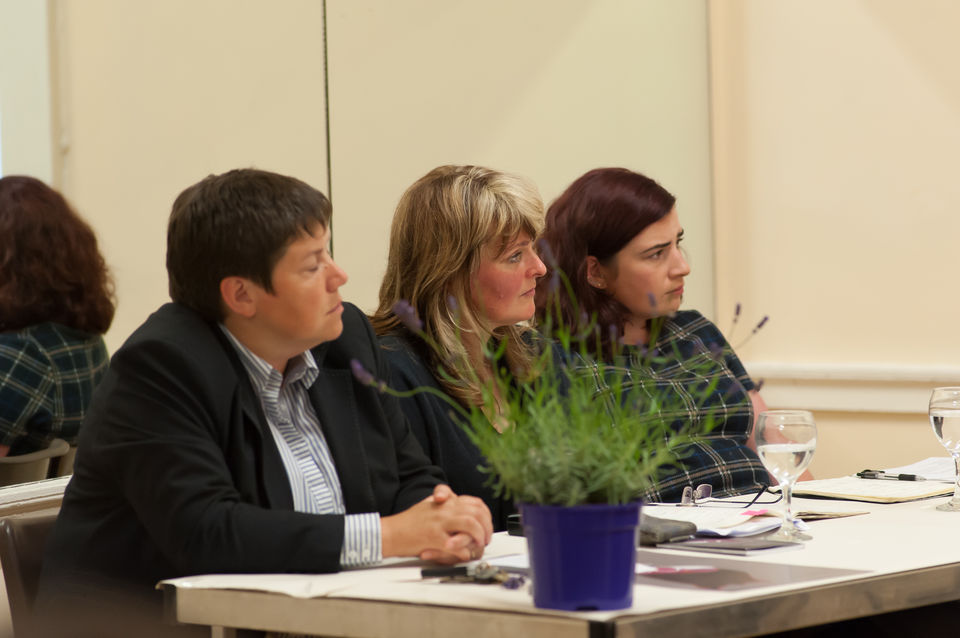
What would you like to see happen here?
It would be great if artists could live here, work here, have families here and have some level of sustainability, which is a big ask. On one side, it's a boring ask, but it's essential I think if an artist can live here and their kids can go to school here, then the amazing artwork will come out of it. Like if they can pay bills, then you don't need to worry about the art side of things. That's what happened in Glasgow. They had a Capital of Culture and it was great, but what really, really helped was it was cheap enough at the time for artists to actually live there and thrive and not worry about money - to just get on with the business of making art. Then 20 years later, you have all these Turner Prize-winners coming out of Glasgow - that's not an accident. I'd love to see that here - people just getting on with it, making the work and not constantly be trying to convince people that art is a good thing.
What would need to happen to get there?
Funding and a plan and a vision and a commitment saying, we're going to have subsidised studies and we're going to have things that artists can do that they know they're going to have their rent paid for the next year of two, that there's opportunities. Even things like having a Masters course here so that artists don't have to move to be educated. So it's a lot of little things, but there is a strategy being made for the city and county, and I think 2020 has shown a lot of non-art people the value of art and it's not just about the icing on the cake to impress the tourists, it's a right of a citizen to have culture in their lives. Obviously Michael D did a lot for that cause as well, and I think the 2020 bid, even if nothing happens, I think it has shown people that everyone has a right to have access to culture. What they want to do with it after is down to them.
- Michael FitzGerald - Previous
- Next - Enda McEvoy